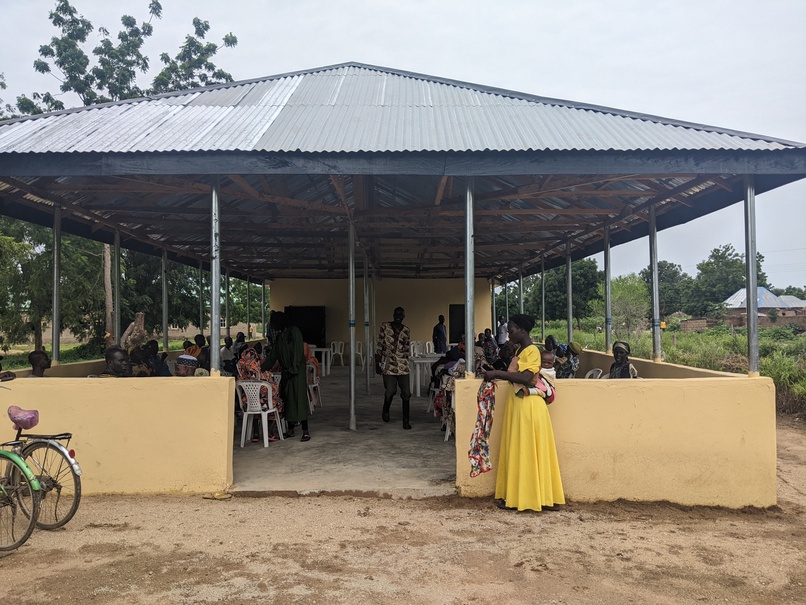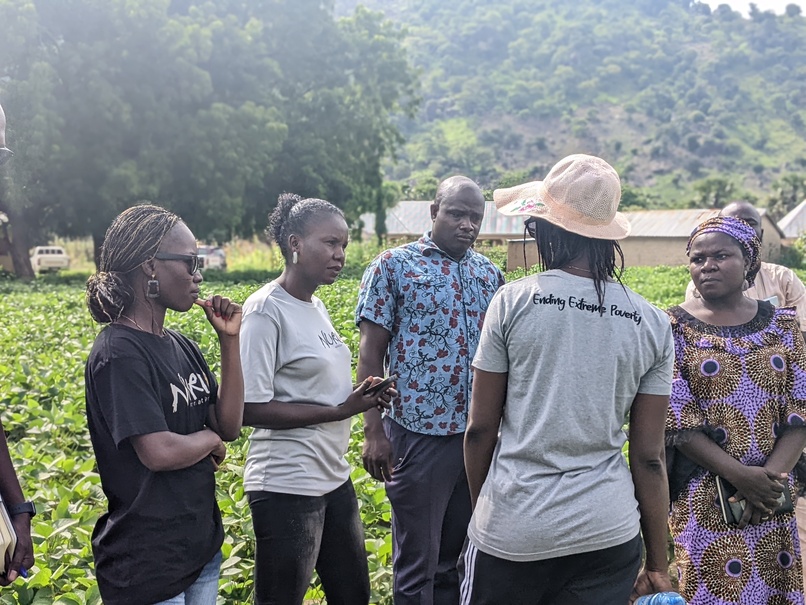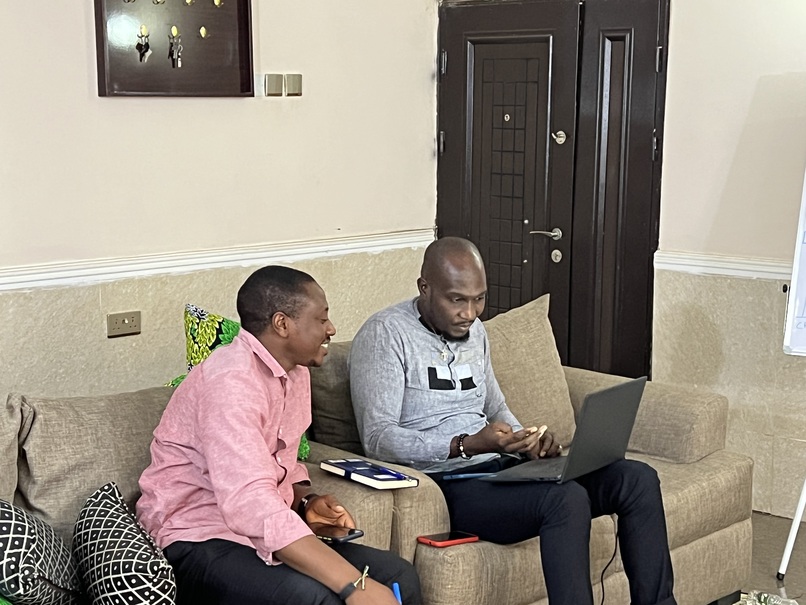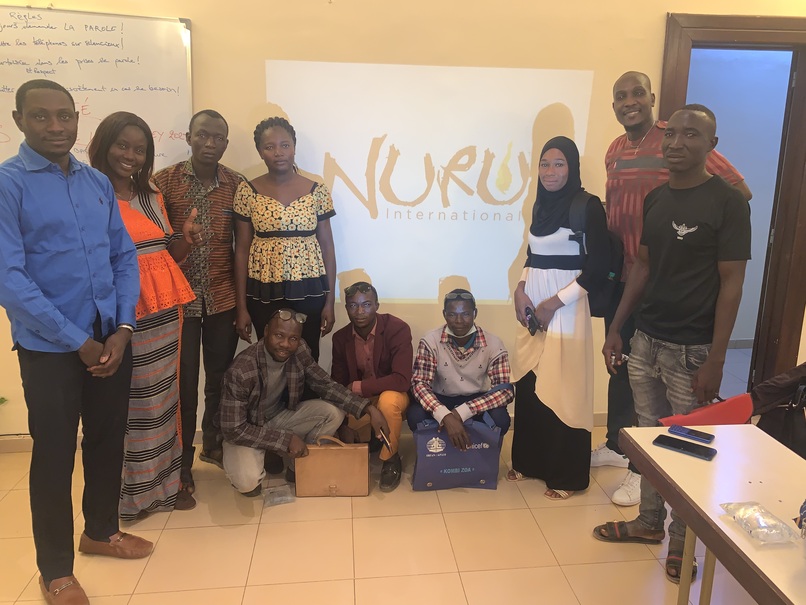Beyond the technology
Using KoboToolbox to measure the impact of Nuru Burkina Faso’s locally-led initiatives for sustainable development
In rural areas of Burkina Faso, many subsistence farming communities face challenges that affect crop production, including a shortage of arable land and unpredictable climate conditions. These factors contribute to enduring poverty in the region and impact local farmers’ ability to meet basic needs. With agriculture accounting for the majority of the nation’s economy and employing around 80% of the workforce, finding strategies to better support smallholder farmers is essential to improving local livelihoods and reducing poverty on a broader scale.
Nuru Burkina Faso is leading initiatives to support local farmers to transition beyond subsistence agriculture and build resilience in vulnerable communities across the country. Using KoboToolbox to target initiatives and measure the effectiveness of its program delivery, Nuru Burkina Faso supports farmers to scale from subsistence agriculture to established farming cooperatives. Nuru Burkina Faso’s efforts are supported and reinforced by fellow organization Nuru International and the rest of the Nuru Collective. The Nuru Collective is a network of organizations united under a shared vision to cultivate lasting meaningful choices in the most vulnerable and marginalized communities in the world.

As part of its sustainable development approach, Nuru International applies a self-sustaining, long-term service delivery model that focuses intervention programming on building local capacities to lead and adapt. Nuru prioritizes leadership training and establishes local Nuru organizations that provide communities with the tools they need to implement locally-led poverty reduction initiatives through farmer-owned cooperatives. Local Nuru organizations in Kenya, Ethiopia, and Nigeria have all used KoboToolbox to conduct assessments and collect reliable data to inform projects aimed at supporting farming communities in their regions.
“[Local Nuru organizations] use KoboToolbox as an accessible, accurate, and easy-to-understand method of compiling and cleaning data from smallholder farmers in the most remote areas of each country.” - Ian Schwenke, Sr. Monitoring, Evaluation, and Learning Associate at Nuru International
In September 2022, Nuru Burkina Faso participated in a learning exchange with Nuru Nigeria. The newly formed Burkina Faso team traveled to Nigeria to learn from local leaders at Nuru Nigeria. This experience gave them the opportunity to build on lessons learned by other Nuru organizations while benefiting from the local perspectives and expertise of their Nuru peers. Moreover, it allowed the Nuru Burkina Faso team to establish internal monitoring, evaluation, and learning (MEL) systems to effectively deploy KoboToolbox for data collection, ensure data quality and farmer anonymity, and analyze trends to improve program activities.

The Nuru Burkina Faso team used KoboToolbox to collect data from 277 farmers from the rural communities outside of Ouagadougou, the capital city. This baseline assessment captured data on key agricultural factors, including crop types, farming techniques, and financial resilience. The data provided essential information for project planning, helping to identify community needs and pinpoint targets for high-impact interventions. Based on their findings, Nuru Burkina Faso strategically focused on initiatives to develop the capacities of farmer-owned cooperatives, foster financial inclusion, and promote the use of technical assistance tools, such as remote weather SMS messaging.

As an accessible tool that requires minimal training and that can be used in remote areas, KoboToolbox has been integral to Nuru Burkina Faso’s data collection activities. Using KoboToolbox to capture near real-time data, the Nuru team will conduct surveys on an annual basis to continuously monitor program implementation. Subsequent data collection will assess how interventions can help farmers improve their crop yields, increase their income, and ultimately strengthen resilience by establishing sustainable businesses. This year, Nuru Burkina Faso plans to deploy KoboToolbox for the first year impact survey, aiming to reach over 500 farmers to gauge the effectiveness of the first year of programming.

To support their goal of improving social and economic conditions across the country, the Nuru team can use the insights gained with KoboToolbox to demonstrate that their interventions are making a difference in the lives of individual farmers in Burkina Faso. Looking ahead, Nuru Burkina Faso will continue to conduct annual assessments with KoboToolbox to further advance their community-driven poverty reduction interventions. By analyzing the results of the assessments, Nuru Burkina Faso can accurately measure their project impact and report on the effectiveness of their initiatives to key stakeholders, donors, and investors.